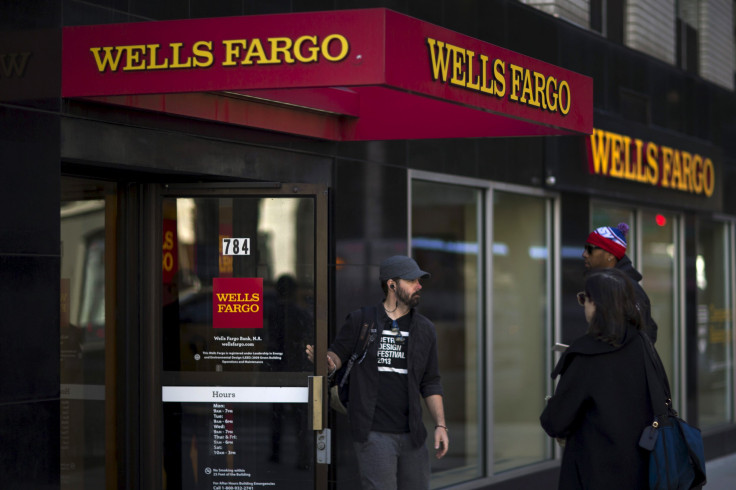Savers Beware: Study Names 10 Firms With The Highest Rates Of Financial Adviser Misconduct

Americans saving for retirement have dozens of options when it comes to choosing financial advisers. From brand names like Raymond James and UBS to more niche firms like Pershing and First Allied Securities, savers face a tough task in determining which company they ought to trust to steward their retirement assets.
A new study might make that choice a bit easier. Researchers tabulated the disciplinary data for hundreds of thousands of financial advisers across the U.S. to determine which firms have the highest incidence of misconduct.
The results were striking. While some companies could boast that fewer than 2 percent of their advisers had ever run afoul of industry regulators, others had misconduct rates above 10 percent. At four companies — UBS Financial Services, Wells Fargo Advisors Financial Network, First Allied Securities and Oppenheimer & Co. — more than 15 percent of advisers had black marks on their records.
And it doesn’t appear to be a coincidence that so many advisers dinged by regulators for unsuitable investment advice and other failings end up clumped together at particular firms, the researchers found.
“Our findings suggest that some firms ‘specialize’ in misconduct and cater to unsophisticated consumers, while others use their reputation to attract sophisticated consumers,” the researchers wrote, noting that bad behavior seems related to the type of clients the firms serve.
“The firms with more misconduct are located in areas with less educated people and more elderly population,” said University of Chicago Booth School of Business associate professor Gregor Matvos, one of the study’s authors. “It's the business model in who they interact with.”
Matvos and his coauthors — University of Minnesota Carlson School of Management economics professor Mark Egan and Booth School finance professor Amit Seru — concluded that firms differed significantly in their tolerance of misconduct, with some companies aggressively disciplining advisers for stepping out of line and others taking a more laissez-faire approach.
“If you get a new blemish on your record, you’re more likely to be hired by a firm that has advisers with blemishes,” Matvos said.
Titled “The Market for Financial Adviser Misconduct,” the study comes as regulators devote growing attention to concerns around conflicts of interest in retirement advice. The White House’s Council of Economic Advisers published a study last year estimating that so-called conflicted advice costs savers $17 billion a year in additional fees and costs.
The Labor Department is in the midst of bringing new rules that would limit the types of compensation many advisers currently receive. Advocates of the rules say the new policy would curtail wrongdoing by eliminating the incentives that push advisers to offer unsuitable advice to savers. Opponents, meanwhile, argue that the rules would force advisers to abandon less affluent clients.
Industrywide, the research found that around half of financial advisers who receive regulatory sanction end up leaving their jobs within 12 months. But 44 percent of advisers who lost their jobs after being cited for misconduct were able to find a new position the following year, the report found, after taking an average 10 percent deduction in pay. Nationwide, 7 percent of advisers have been disciplined over misconduct, the study found.
The researchers compiled the data using public records provided by the Financial Industry Regulatory Authority, or Finra, a non-governmental industry self-regulator. The group investigates advisers accused of wrongdoing and oversees arbitration disputes. The researchers omitted several categories of Finra records that were not directly indicative of financial misconduct, such as a broker’s personal bankruptcy.
On the positive end of the spectrum, Morgan Stanley and Goldman Sachs both employ a workforce where fewer than 1 percent of advisers have been cited for wrongdoing, the study found.
An Oppenheimer representative said the firm has “made significant investments to proactively tackle risk and compliance issues in our private client division,” including senior personnel changes and new compliance teams. “Oppenheimer recognized the need to address these legacy issues head on, and we are confident that we have put in place safeguards to ensure that our advisers and other employees meet the highest ethical standards,” the statement read.
Representatives from the other nine firms with the highest rates of adviser misconduct did not return requests for comment.
Wells Fargo appeared on both the top 10 and the bottom 10 because of the structure of its advisory businesses. Wells Fargo Advisors Financial Network, with a misconduct rate of 15 percent, is an arm of the banking giant that houses independent advisers affiliated with the network but not technically employed by the bank. Of advisers employed by the lender’s in-house arm, Wells Fargo Securities, just 1.7 percent had misconduct records.
Though the study is the first to grade advisory firms by public misconduct records, Matvos said researchers have much more data to plumb. “This is barely scratching the surface,” he said.
© Copyright IBTimes 2024. All rights reserved.





















